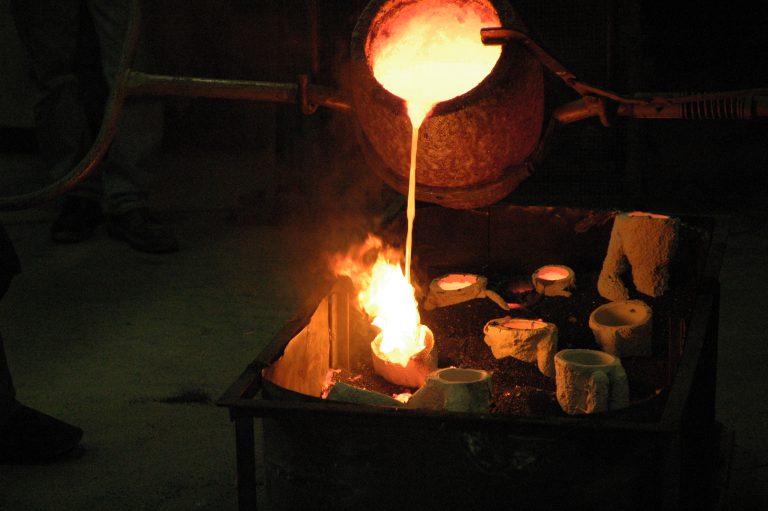Gilsonite Usage In Foundry & Construction
Gilsonite is combined with coal and other ingredients as an additive in foundry sands to ensure the quality of the molded part. In sand case, by adding Gilsonite and asphalts at approximately one-third the level of sea coal the pitch had the same 900°F (482.2°C) volatiles. At this level, loss on ignition with asphalt, and Gilsonite was less than 50% of that obtained with seacoal and pitch while the Gilsonite and asphalts evolved less total gas when compared to seacoal and pitch Gilsonite had the least visible smoke generated in the laboratory tests. The lower gas evolution should reduce ventilation load on the pouring floor. The physical property relationships developed in new sand mixes were confirmed by sand using Gilsonite as an additive. Casting finish off a Gilsonite mix has been equal to Seacoal.
For High-Value Iron Castings, Gilsonite Performs Like No Other.
Foundries around the world have known for decades that – when put to the fire of molten iron – Gilsonite brings high performance to your foundry sand.
For your complex, high-value iron castings, Natural Bitumen performs like no other carbon additive. Gilsonite’s naturally superior properties mean high-quality castings with better finish and fewer imperfections.
Asphalt has been the subject of exhaustive study to improve characteristics for use in paving. Various properties of asphalt are manipulated to produce a product that has the appropriate wear properties, rut resistance, fatigue and low temperature cracking resistance, adhesion strength,viscosity and pour point. Rut resistance is resistance to longitudinal surface depressions in the wheel paths. Adhesion strength is the maximum adhesion strength of the joint sealant and the joint reservoir, including but not limited to, between the aggregate and the binder.
Shove resistance is resistance to permanent, longitudinal displacement of a localized area of the pavement surface caused by traffic pushing against the pavement. Heavy hydrocarbon that can be derived from, without limitation, natural asphalt (Gilsonite), shale asphalt, bottoms from a solvent deasphalting process, hard asphalt, blown asphalt, stiff refined asphalt, a flux. Asphalt is usually the base ingredient for the primer and the binder.
A primer can be asphalt, fibers (including but not limited to, mineral or cellulose), processing agent (including but not limited to, oligomeric wax, carboxilated, derivative of oligiomeric wax, or low molecular weight polyolefin), polymeric or elastomeric additive, or asphalt-derived. A primer melts to the aggregate. Asphalt binders without polymers are referred to as “neat”.
Advantages
Gilsonite Usage in Foundry & Construction
- Reduce imperfections due to the rapid reactions
- Improve sand peel from casting at shake out
- Produce smoother, cleaner casting surface
- Minimize imperfections, casting losses, scrap
- Three times as much gas generated as sea coal for better mold release
- High lustrous carbon for better finish
- Reductive atmosphere for less reaction between mold and casting for fewer imperfections

